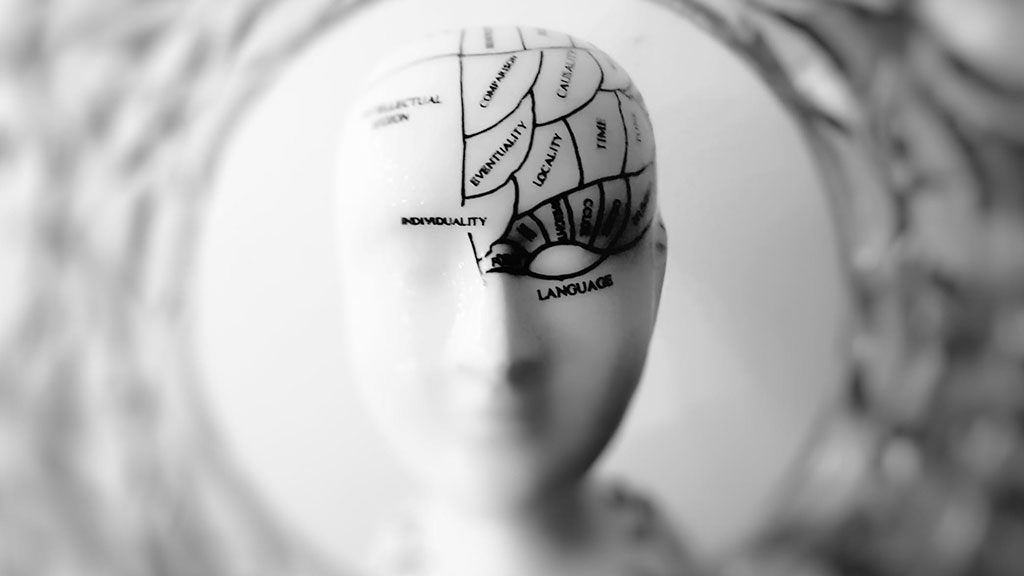A new protocol for brain stimulation has been proposed aiming to slow down deterioration in Alzheimer's patients
A team of researchers from the Universitat Oberta de Catalunya's Cognitive NeuroLab proposes clinical trials to study the benefits of transcranial magnetic stimulation
At present, there is still no definitive cure for Alzheimer's disease, the most prevalent and debilitating type of dementia, which, according to some estimations, may affect up to 65.7 million people by 2030. In aid of World Alzheimer's Day, celebrated worldwide on 21 September, a team of researchers from the Universitat Oberta de Catalunya's (UOC) Cognitive NeuroLab tells us about a new therapeutic approach that has been devised to slow down symptoms of dementia and improve patients' quality of life. It is a new protocol for transcranial magnetic stimulation, which will allow doctors to directly intervene in areas of the brain affected by the disease in an attempt to stop the cognitive deterioration process.
This new therapeutic proposal, published in the open-access journal BMC Research Notes, suggests that a clinical trial be carried out with the aim of studying whether these types of non-invasive techniques could induce long term changes in brain activity and in the patient's neural networks, which would make it a promising clinical intervention. "Our aim is to demonstrate that this approach could help reduce the rate of deterioration and improve patients' quality of life, improving their memory and other cognitive capacities that are key for maintaining independence in everyday life", said neuropsychologist and neuroscientist Elena Muñoz Marrón, professor at the UOC's Faculty of Health Sciences, director of the research laboratory Cognitive NeuroLab and the main author behind this proposal.
Clinical trials
In order to test this new brain stimulation protocol, researchers proposed a clinical trial of 54 patients with onset or moderately developed Alzheimer's disease, chosen from the Dementia Unit at the Consorcio Sanitario (Health Committee), in Terrassa. This sample will allow the researchers to test the benefits of transcranial magnetic stimulation (TMS), a non-invasive brain stimulation technique that involves creating a magnetic field to stimulate neurons in the areas of the brain affected by deterioration and facilitate its recovery. The advantage of this procedure, which has already proven itself effective in treating illnesses such as treatment-resistant depression, is that personalized treatments can be devised for each patient depending on the areas most affected by neural degeneration.
The treatment will begin with an individualized study of each patient's brain using MRI. Then, experts will be able to localize the most affected subcortical areas of the brain and, thanks to a study on brain connectivity and by means of a seed-based tracking technique, they will accurately select which specific areas of the cerebral cortex should receive the stimulation. The researchers plan to alternate the therapy in four regions affected by the Alzheimer's: the dorsolateral prefrontal cortex and the parietal lobe on both sides of the brain.
The transcranial magnetic stimulation is administered in sessions of under three minutes and twelve seconds, much shorter than conventional protocols that can last up to half an hour. The team of neuroscientists behind the proposal suggests ten sessions, each under ten minutes long, which will be completed over a two week period. The results will be assessed when the treatment has ended and will be repeated after one, three and six months to assess whether the changes have remained positive during this time. "This treatment is not compatible with other therapeutic approaches. In fact, for this clinical trial we are proposing a combination of transcranial magnetic stimulation with cognitive stimulation, which we already know can help to slow down deterioration caused by the disease", stated Marrón, director of the UOC's University Master's Degree in Neuropsychology.
Brain plasticity
The researchers from Cognitive NeuroLab also plan on studying brain plasticity in patients suffering from this type of dementia, in other words, the brain's ability to adapt to change, maintain brain connectivity, acquire new skills and recover from damage. "By assessing the brain plasticity of Alzheimer's patients, we might be able to generate a neurophysiological measurement of the condition of an Alzheimer patient's brain. This measurement could be very useful when it comes to assessing how effective different therapeutic interventions are, since it could give us an objective indicator of how the brain works following treatment, which we could then correlate against the consequential cognitive, emotional and functional improvements", explained Marrón.
For now, this research project is still only a theoretical plan. But, as the experts remind us, even just the publication of an article like this in a scientific journal represents a positive outcome in itself, since it ensures that the proposed methodology is the right one. "We also hugely value that these kinds of projects are published in open-access journals, as we know that anyone who might be interested in the subject can access the content and test it for themselves", Marrón added. She went on to reflect that "when researching diseases such as Alzheimer's, we have to join forces to make sure each improvement we make has an effect on people's lives and will be of great benefit to society".
Experts UOC
Press contact
-
Editorial department
